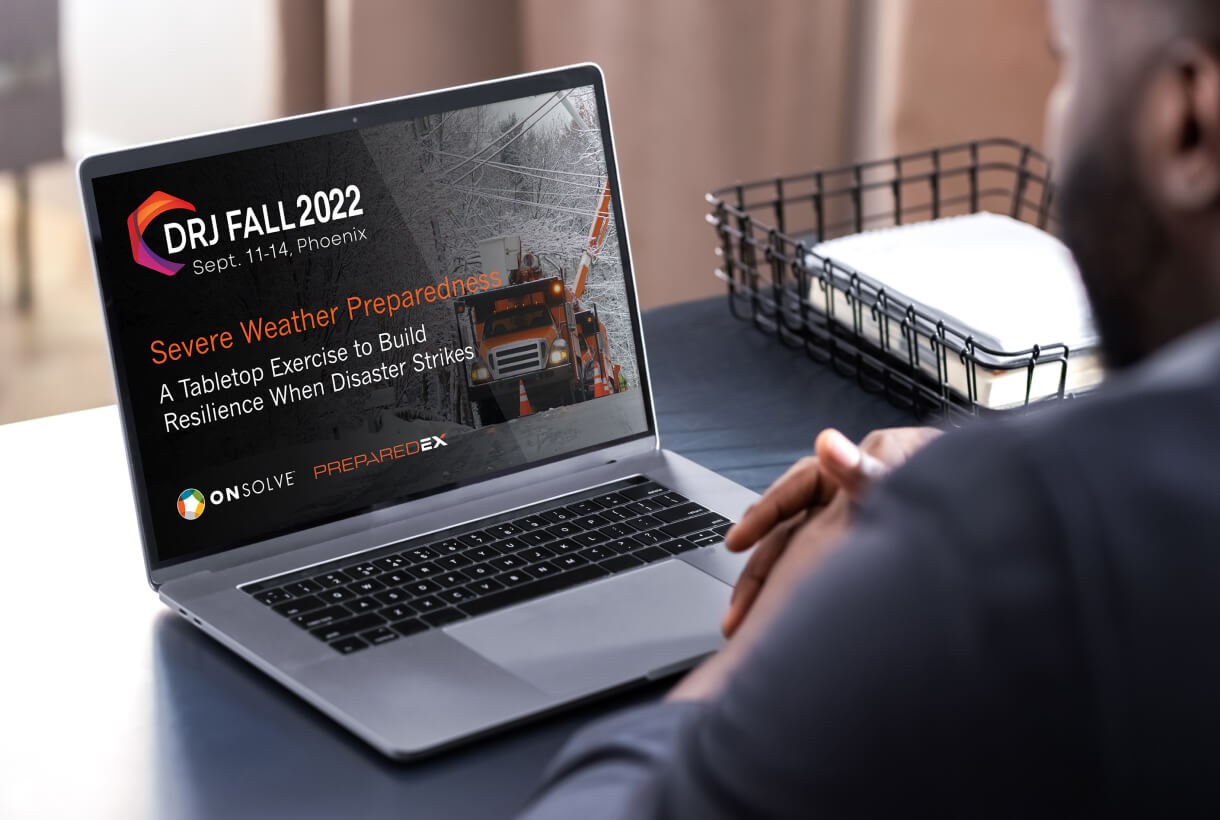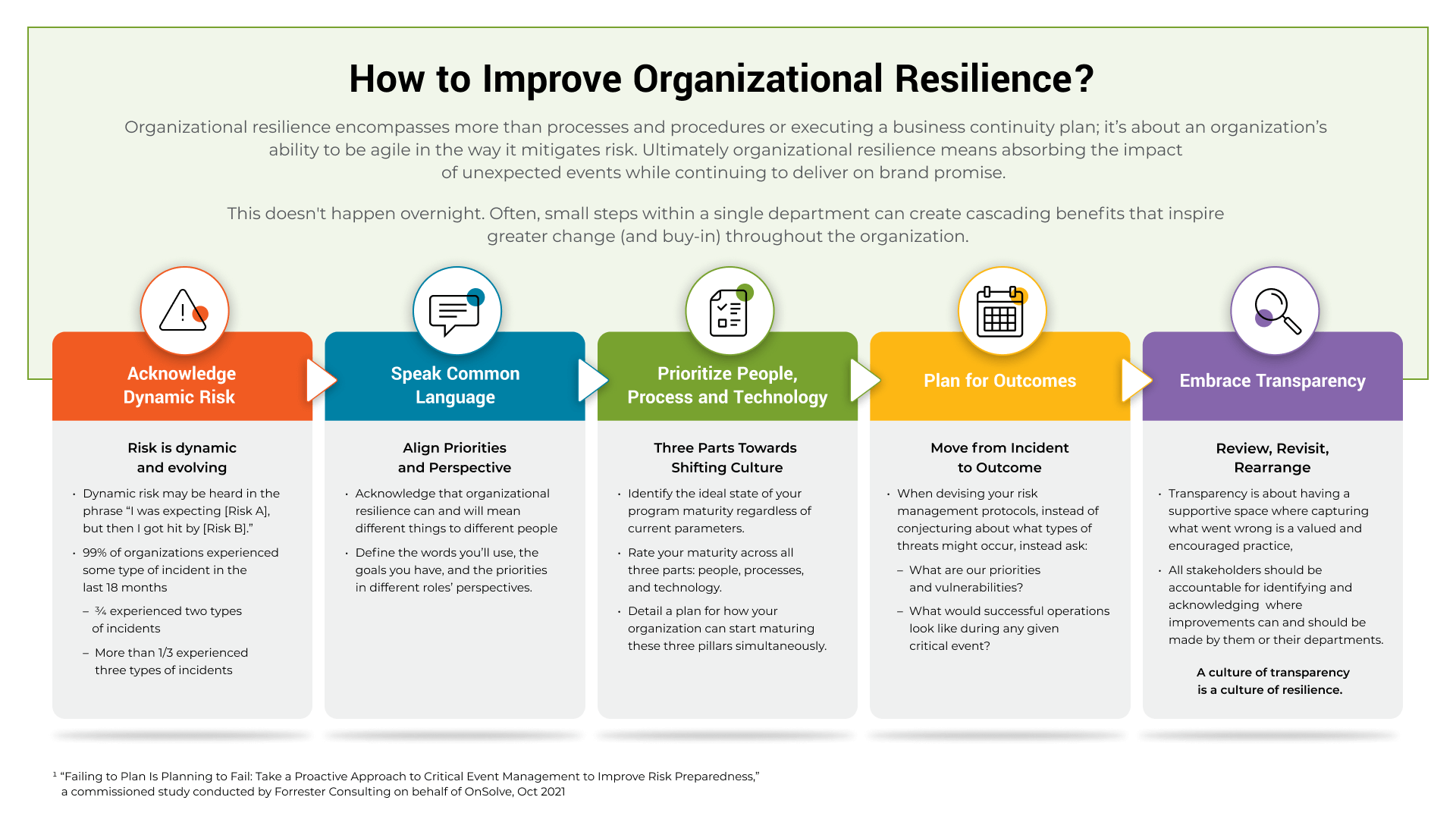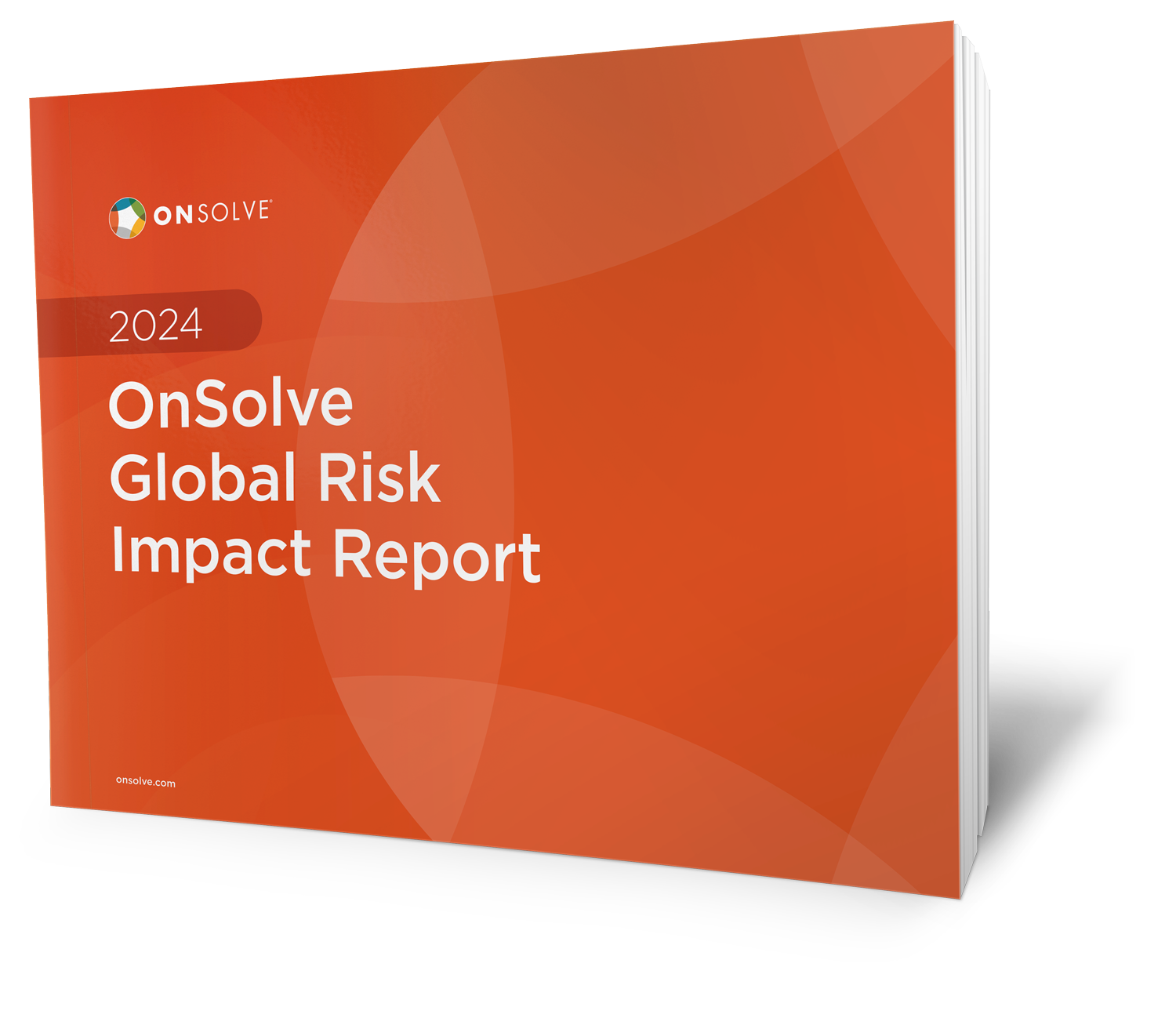Critical events are on the rise in frequency and intensity, particularly when it comes to severe weather. In 2021, the U.S. experienced 20 separate billion-dollar weather disasters resulting in at least 688 direct or indirect fatalities—spanning tornadoes, floods, hurricanes, extreme temperatures and wildfires.
Is your organization prepared for the challenges of the next costly and deadly weather event?
One way to prepare for and mitigate the impact of known and unknown risks to your organization is to learn from industry experts and peers at the DRJ Fall 2022 industry conference, September 11-14, 2022, in Phoenix.
This year’s theme is The Evolution of Resilience, and OnSolve will have experts on-hand to talk with you about how a proactive approach to mitigating risk gives you the best foundation for strengthening your organization’s resilience. For instance, a good place to start is to think about your current resilience process. How confident are you in your ability to manage different critical event types—routine emergencies (those your organization has dealt with before and already has procedures in place to manage), as well as crisis emergencies (previously unknown to your organization)?
Then, ask the right follow-up questions: This is essential for helping your organization discern between the different types of incidents and determine the best methods of mitigation going forward.
Consider the following questions:
- Can your organization differentiate between routine vs. crisis emergencies?
- How do you prioritize these incidents?
- Are you confident you and your team can respond and adapt to emergencies at a moment’s notice?
- Can you tell if an incident is impacting your people, places or property?
- Are you receiving fast and accurate information as incidents arise?
- Are you able to communicate once you receive actionable risk alerts?
This list is just for starters. More in-depth and specific questions will naturally arise in the process of cultivating the right approach to organizational resilience.
Practice Gets You Closer to Perfect
Of course, asking the right questions is just one component in strengthening your resilience. Regular practice combined with the right supportive platform will significantly enhance your ability to improvise, adapt and overcome any emergency—especially severe weather. Conducting a meaningful tabletop simulation exercise can be very effective in helping identify where changes or improvements should be made, and help you protect your people, places and property the next time Mother Nature strikes.
Be sure to join our informative session on September 12 at DRJ Fall 2022:
- Severe Weather Preparedness: A Tabletop Exercise to Build Resilience When Disaster Strikes
During this session, Rob Burton, Co-founder and Managing Director of PreparedEx, and Ann Pickren, Chief Customer Officer of OnSolve, will walk you through an example of what an engaging and impactful tabletop exercise looks like and how it can help make your company better prepared for a major weather emergency. Attendees will learn a framework for designing and delivering a crisis simulation exercise, strategies to help you obtain timely and accurate intelligence, and best practices for communicating internally and externally through a critical event lifecycle.
Don’t miss your chance to learn how to ensure your organization is prepared for the challenges of the next costly and potentially deadly critical weather event. To register, visit the event page. Options for in-person attendance and online/on-demand participation are available.
Be sure to follow all the updates on social media at @OnSolve and via #DRJFall.



